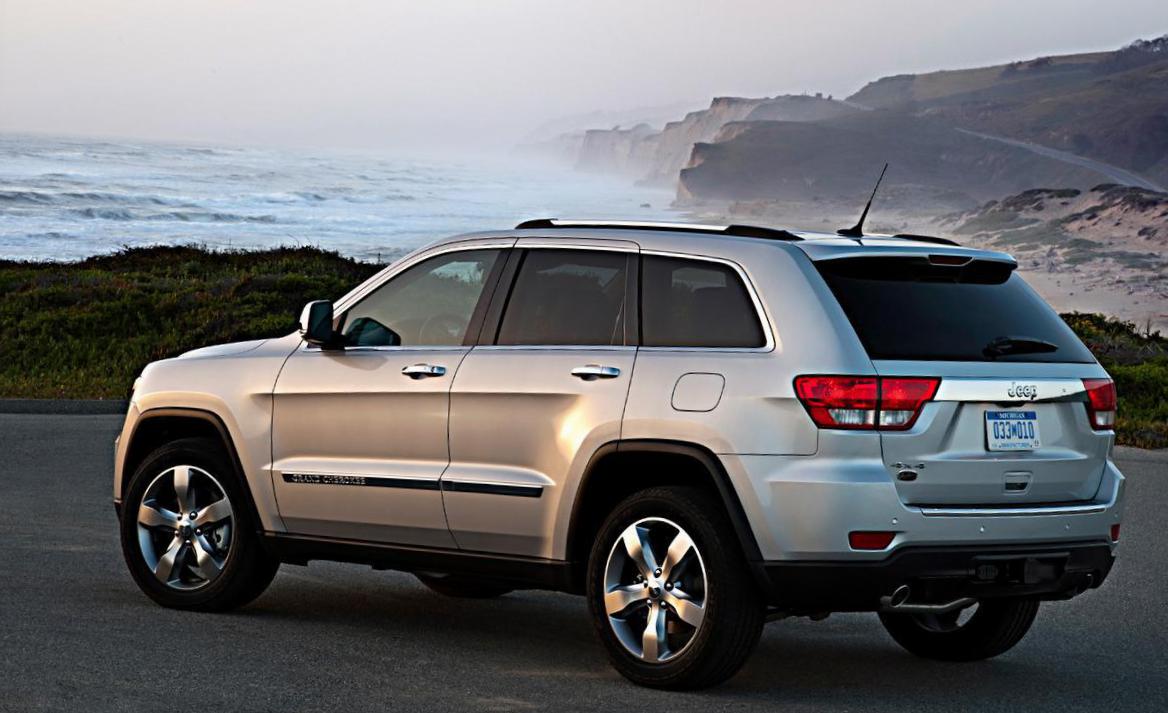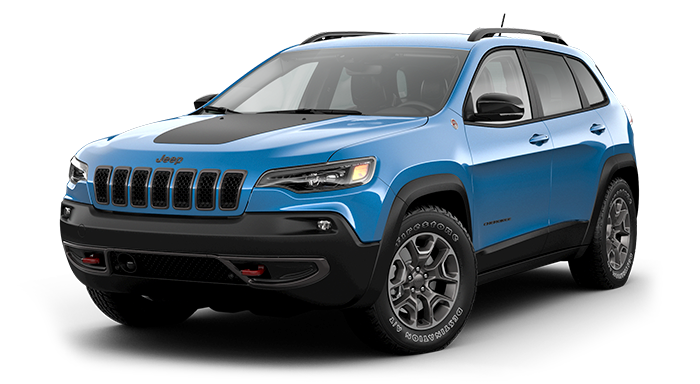Jeep Cherokee Lease Calculator: Your Essential Guide to Smart Leasing
Jeep Cherokee Lease Calculator: Your Essential Guide to Smart Leasing jeeps.truckstrend.com
The allure of a new Jeep Cherokee is undeniable. Its iconic blend of rugged capability, comfortable interior, and distinctive style makes it a popular choice for adventurers and families alike. While purchasing is an option, leasing offers a compelling alternative for many, providing lower monthly payments and the flexibility to drive a new vehicle more frequently. However, navigating the complexities of a lease agreement can be daunting without the right tools. This is where the Jeep Cherokee Lease Calculator becomes your invaluable ally.
At its core, a Jeep Cherokee Lease Calculator is a sophisticated digital tool designed to estimate your potential monthly lease payments. It takes into account various financial factors and vehicle specifics, providing a clear picture of what you can expect to pay. Far from being a mere number-cruncher, this calculator empowers prospective lessees by fostering transparency, aiding in budgeting, and giving you the upper hand in negotiations. Understanding how to effectively use this calculator is the first step towards securing a favorable lease deal on your dream Jeep Cherokee.
Jeep Cherokee Lease Calculator: Your Essential Guide to Smart Leasing
Understanding the Basics of a Lease Calculator
Before diving into the specifics of a Jeep Cherokee lease, it’s crucial to grasp the fundamental concepts that underpin any lease calculation. A lease is essentially a long-term rental agreement where you pay for the depreciation of the vehicle over a specified term, plus interest and fees. A lease calculator simplifies this complex equation by integrating all the variables that determine your monthly payment.
Why use it?
- Transparency: It demystifies the leasing process by showing how each factor contributes to your payment.
- Budgeting: Helps you determine if a particular Jeep Cherokee trim fits within your financial comfort zone.
- Negotiation Power: Armed with estimated payments, you can confidently negotiate with dealers, knowing what a fair deal looks like.
- Comparison: Allows you to compare different lease terms, down payment options, or even different trims of the Cherokee to see their impact on your wallet.

The key variables you’ll encounter and input into a lease calculator include the vehicle’s MSRP, the negotiated capitalized cost, its residual value, the money factor (which is like an interest rate), the lease term, any down payment or trade-in, and applicable taxes and fees. Each of these plays a critical role in shaping your final monthly outlay.
Deconstructing the Key Components of Your Jeep Cherokee Lease Payment
To truly master the Jeep Cherokee Lease Calculator, you need to understand the individual elements that comprise your monthly payment. These are the levers you can potentially adjust, or at least comprehend, to influence your lease deal.
-
Capitalized Cost (Cap Cost): This is the agreed-upon price of the vehicle that you are essentially "financing" over the lease term. It’s similar to the purchase price if you were buying the car. Lowering the cap cost through negotiation is the single most effective way to reduce your monthly payment. Dealers often try to focus on the monthly payment; always negotiate the cap cost first, just as you would when buying.
-
Residual Value: This is the estimated value of the Jeep Cherokee at the end of your lease term, expressed as a percentage of the MSRP. For instance, if a Cherokee has an MSRP of $35,000 and a 55% residual value after 36 months, its estimated value will be $19,250. You are effectively paying for the difference between the capitalized cost and the residual value (the depreciation) over the lease term. A higher residual value means less depreciation, which translates to a lower monthly payment. Jeep Cherokees generally hold their value reasonably well, which can be advantageous for leasing.
-
Money Factor (Lease Rate): Often presented as a very small decimal (e.g., 0.00180), the money factor is the equivalent of an interest rate on your lease. To convert it to an annual percentage rate (APR), multiply it by 2400 (0.00180 x 2400 = 4.32% APR). A lower money factor directly reduces your monthly interest charge and thus your overall payment. This factor is largely determined by your credit score and current market rates, though dealers can sometimes mark it up, so it’s worth comparing offers.
-
Lease Term: This is the duration of your lease agreement, typically 24, 36, or 48 months. A longer term usually results in lower monthly payments because the depreciation is spread out over more months. However, it also means you’ll pay more in total interest over the life of the lease, and you might be out of warranty coverage for the latter part of a very long lease. Shorter terms mean higher monthly payments but less total interest and quicker access to a new vehicle.
-
Down Payment (Capital Cost Reduction): This is any upfront cash you pay at the beginning of the lease. A down payment lowers your capitalized cost, thereby reducing your monthly payments. While tempting, it’s generally advised to put down minimal or no money on a lease. If the vehicle is totaled early in the lease, you may lose your down payment as gap insurance typically only covers the difference between the actual cash value and the lease payoff, not your upfront payment.
-
Taxes and Fees: Don’t forget these! They can add a significant amount to your overall lease cost.
- Sales Tax: Varies by state and is often applied to the monthly payment or the total depreciation.
- Acquisition Fee: An administrative fee charged by the leasing company (typically $595-$995).
- Disposition Fee: A fee charged at the end of the lease if you don’t purchase the vehicle (typically $300-$500).
- Registration and License Fees: Standard fees for owning/operating a vehicle in your state.

How to Use a Jeep Cherokee Lease Calculator: A Step-by-Step Guide
Using a lease calculator is straightforward once you understand the inputs. Follow these steps to get an accurate estimate for your Jeep Cherokee lease:
-
Identify Your Target Jeep Cherokee: Select the specific trim level (e.g., Latitude, Limited, Trailhawk, Summit) and any desired packages or options. This will help you determine the Manufacturer’s Suggested Retail Price (MSRP).
-
Find a Reputable Lease Calculator: Many dealership websites, automotive review sites (like Edmunds, Kelley Blue Book), and financial institutions offer free lease calculators.
-
Input Vehicle Details:
- MSRP: Enter the full MSRP of your chosen Cherokee.
- Negotiated Price (Capitalized Cost): This is where your negotiation skills come in. Enter the price you believe you can get the dealer to agree to. Often, aiming for 5-10% below MSRP is a good starting point.
- Trade-in Value (if applicable): If you’re trading in a vehicle, enter its agreed-upon value. This reduces your cap cost further.
-
Enter Lease Parameters:
- Lease Term: Choose your desired lease duration (e.g., 24, 36, 39, 42, 48 months).
- Annual Mileage Allowance: Select the annual mileage limit that best suits your driving habits (e.g., 10,000, 12,000, 15,000 miles per year). Remember, exceeding this limit incurs per-mile charges at lease end.
-
Add Financial Details:
- Down Payment: Specify any amount you plan to pay upfront.
- Money Factor: This is crucial. While calculators can estimate, always get the exact money factor and residual value directly from the dealer or the leasing company (e.g., Chrysler Capital for Jeep). This is often the hardest figure to find without direct inquiry but essential for accuracy.
- Residual Value: Again, get the official percentage from the dealer.
-
Account for Taxes and Fees: Some calculators allow you to input your state’s sales tax rate and estimate common fees. If not, remember to factor these in separately.
-
Calculate and Analyze: Hit the "Calculate" button. The calculator will provide an estimated monthly payment. Review the breakdown to see how each component contributes to the total.
-
Adjust and Experiment: Play with the numbers! See how increasing your down payment, extending the term, or negotiating a lower cap cost impacts the monthly payment. This iterative process helps you find the sweet spot for your budget.
Maximizing Your Savings and Navigating Challenges
Using the calculator is just one part of a smart leasing strategy. To secure the best deal on your Jeep Cherokee, consider these actionable insights and prepare for potential challenges.
Tips for a Better Deal:
- Negotiate the Capitalized Cost Aggressively: Treat the "selling price" of the car (cap cost) as if you were buying it. This is your biggest leverage point. Don’t let the dealer only talk about the monthly payment.
- Shop Around for the Money Factor: Different dealerships or even different leasing companies might offer slightly different money factors. A lower money factor means less interest. Your credit score will heavily influence this.
- Be Aware of Residual Values: While you can’t negotiate the residual value percentage, knowing which Cherokee trims or options hold their value best can guide your initial choice, leading to lower depreciation and thus lower payments.
- Consider Incentives and Rebates: Manufacturers often offer special lease incentives, rebates, or reduced money factors on specific models or during certain times of the year. Ask the dealer about these or check manufacturer websites.
- Understand Your Credit Score: A strong credit score (typically 700+) is vital for securing the best money factor.
- Minimize Your Down Payment: As discussed, a large down payment is risky. If you have extra cash, consider using it to cover fees or security deposits rather than reducing the cap cost.
- Calculate Your Effective Monthly Payment: Add up all your drive-off fees (down payment, first month, acquisition fee, taxes, registration) and divide that by the number of months in your lease. Add this "upfront cost per month" to your advertised monthly payment for a true understanding of your cost.
Potential Challenges & Solutions:
- Hidden Fees: Always ask for a detailed lease breakdown. Ensure all fees are disclosed upfront.
- Mileage Overages: Be realistic about your driving habits. Choosing a higher mileage allowance (e.g., 15,000 miles/year instead of 10,000) will increase your monthly payment slightly but can save you significantly more than paying overage charges (often $0.20-$0.30 per mile) at the end.
- Excessive Wear and Tear: Understand what constitutes "normal" wear and tear according to the lease agreement. Minor dents, dings, or excessive tire wear can result in charges. Consider purchasing optional "wear and tear protection" if you’re concerned, but weigh its cost against potential savings.
- Early Termination Penalties: Breaking a lease early is almost always very expensive. Avoid it if possible. If your circumstances change, explore options like lease transfers (if allowed) before simply turning in the vehicle.
Is Leasing a Jeep Cherokee Right for You? Pros and Cons
While a lease calculator helps you understand the costs, it’s equally important to determine if leasing aligns with your lifestyle and financial goals.
Pros of Leasing a Jeep Cherokee:
- Lower Monthly Payments: Typically significantly lower than loan payments for the same vehicle.
- Drive New Cars More Often: Enjoy the latest features, technology, and safety advancements every few years.
- Warranty Coverage: Most lease terms align with the manufacturer’s bumper-to-bumper warranty, meaning you’re usually covered for major repairs.
- Less Hassle at End of Term: Simply return the vehicle (after inspections and fulfilling obligations) without the need to sell or trade it in.
- Lower Upfront Costs: Often requires less money down compared to a purchase.
Cons of Leasing a Jeep Cherokee:
- No Ownership Equity: You’re building no equity in the vehicle. You’re always making payments, but never own it.
- Mileage Restrictions: If you drive a lot, lease mileage limits can be a significant drawback.
- Wear and Tear Charges: You’re responsible for maintaining the vehicle and returning it in good condition, or face charges.
- Early Termination Penalties: Getting out of a lease early can be very costly.
- Always Making Payments: You’ll likely always have a car payment as you cycle through new leases.
Who is it for? Leasing a Jeep Cherokee is ideal for individuals or families who:
- Enjoy driving a new vehicle every 2-4 years.
- Have predictable driving habits and stay within mileage limits.
- Prefer lower monthly payments and less upfront cash.
- Don’t want the hassle of selling a used car.
- Are diligent about vehicle maintenance.
Hypothetical Jeep Cherokee Lease Calculation Scenarios
To illustrate how different variables affect your monthly payment, let’s look at some hypothetical scenarios for a Jeep Cherokee Limited with an MSRP of $38,000 (assuming a consistent acquisition fee of $695 and disposition fee of $395 not included in monthly payment calculation but part of total cost).
| Scenario | MSRP | Negotiated Cap Cost | Residual Value (36 months) | Money Factor | Lease Term | Down Payment | Estimated Monthly Payment |
|---|---|---|---|---|---|---|---|
| Base Scenario | $38,000 | $36,000 | 56% ($21,280) | 0.00190 | 36 months | $1,500 | $425 |
| Higher Down Payment | $38,000 | $36,000 | 56% ($21,280) | 0.00190 | 36 months | $3,000 | $383 |
| Lower Money Factor | $38,000 | $36,000 | 56% ($21,280) | 0.00150 | 36 months | $1,500 | $410 |
| Longer Term | $38,000 | $36,000 | 50% ($19,000) | 0.00190 | 48 months | $1,500 | $370 |
| Shorter Term | $38,000 | $36,000 | 60% ($22,800) | 0.00190 | 24 months | $1,500 | $520 |
| Aggressive Cap Cost Neg. | $38,000 | $34,500 | 56% ($21,280) | 0.00190 | 36 months | $1,500 | $385 |
Note: These are simplified estimates for illustrative purposes. Actual payments will vary based on exact MSRP, options, regional taxes, dealer fees, and creditworthiness.
Frequently Asked Questions (FAQ) about Jeep Cherokee Lease Calculators
Q1: What is a "good" money factor for a Jeep Cherokee lease?
A1: A "good" money factor is subjective and depends on market conditions and your credit score. Generally, anything below 0.00200 (equivalent to 4.8% APR) is considered decent, with excellent credit potentially getting you into the 0.00100-0.00150 range (2.4%-3.6% APR). Always compare with published rates from reputable sources.
Q2: Should I put a down payment on a Jeep Cherokee lease?
A2: It’s generally advised to put down as little as possible, ideally just the first month’s payment and upfront fees. If the vehicle is totaled early in the lease, you could lose your down payment. A lower down payment means higher monthly payments, but it minimizes your upfront risk.
Q3: What happens at the end of a Jeep Cherokee lease?
A3: At the end of your lease, you typically have three options: 1) Return the vehicle to the dealership, pay any excess mileage or wear and tear charges, and the disposition fee. 2) Purchase the vehicle for the residual value (plus any purchase option fee). 3) Lease another new Jeep or different vehicle.
Q4: Can I negotiate the residual value of a Jeep Cherokee?
A4: No, the residual value percentage is set by the leasing company (e.g., Chrysler Capital) at the beginning of the lease and is not negotiable. However, the dollar amount of the residual is based on the MSRP, so negotiating a lower capitalized cost effectively means you’re paying less depreciation, which indirectly influences the overall cost relative to the residual.
Q5: How does my credit score affect my Jeep Cherokee lease?
A5: Your credit score is a major factor in determining the money factor (interest rate) you’ll receive. A higher credit score (Tier 1, usually 700-750+) qualifies you for the lowest money factor, leading to lower monthly payments. A lower score will result in a higher money factor and potentially require a larger security deposit.
Q6: Can I lease a used Jeep Cherokee?
A6: While technically possible, leasing a used car (sometimes called a "lease-to-own" or "finance lease") is rare and usually not offered by dealerships for certified pre-owned vehicles. Most traditional leases are for brand-new vehicles.
Conclusion
The Jeep Cherokee Lease Calculator is more than just a simple tool; it’s a powerful instrument for financial empowerment in your vehicle acquisition journey. By understanding the core components of a lease payment – the capitalized cost, residual value, money factor, and lease term – and leveraging the calculator to experiment with these variables, you can confidently approach a dealership.
Armed with practical advice on negotiating, avoiding common pitfalls, and knowing whether leasing aligns with your lifestyle, you are well-equipped to make an informed decision. Whether you’re drawn to the Cherokee’s rugged capability, its comfortable interior, or its iconic design, using a lease calculator ensures that your path to driving one is as transparent and financially sound as possible. Embrace the calculator, and drive away in your Jeep Cherokee with peace of mind.







